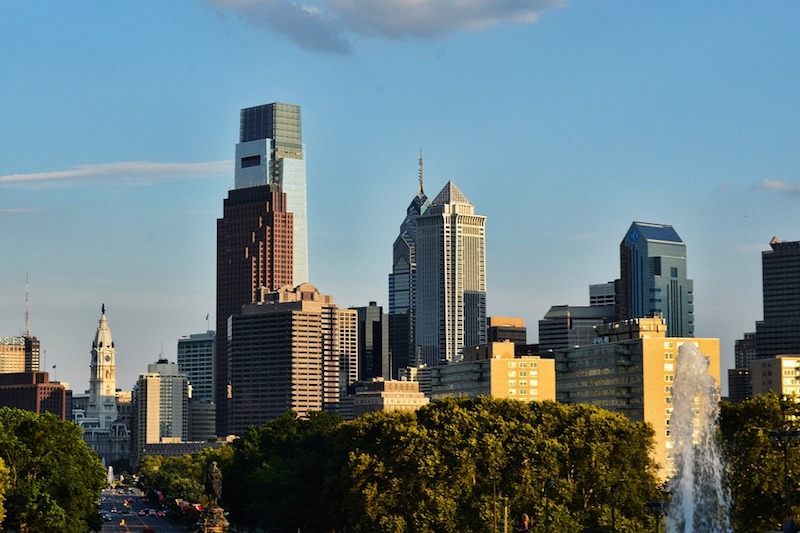A partnership between the Philadelphia Water Department and Drexel University’s Sustainable Water Resource Engineering Lab uses sensors to monitor the effectiveness of green stormwater mitigation systems.
The Green Infrastructure Living Laboratory (GILL) collects real-time data on green infrastructure systems using low-cost sensors. The data, collected at both public and private sites, will eventually inform improvements to green infrastructure design.
The program will aid Philadelphia’s 25-year stormwater mitigation plan that includes wide-scale adoption of green infrastructure to reduce combined sewer overflows into rivers and streams. Researchers are collecting climate data—temperature, precipitation, relative humidity and air pressure—and hydrology data to observe fluctuations in soil moisture, water level, or unit weight.
Among the findings so far: the benefits of green infrastructure systems, such as rainwater harvesting cisterns, have not been well quantified in the past. This means rainwater harvesting cisterns have much potential for businesses and residential buildings as cost-saving systems that manage stormwater and provide non-potable water sources.
Related Stories
| Nov 23, 2011
USGBC launches app lab for LEED certification process
The U.S. Green Building Council has released the App Lab, a searchable catalog of third-party apps that are integrated with LEED data.
| Nov 23, 2011
Document gives advice on stormwater runoff management
The report, “Rooftops to Rivers II,” provides tips on how cities can use smart infrastructure and green building design to minimize pollution from stormwater runoff and other wastewaters.
| Nov 23, 2011
Zoning changes proposed to make New York City buildings greener
New York City will introduce new zoning proposals next month that would make it easier for building owners to add features that will make their properties more sustainable.
| Nov 18, 2011
AGC offers webinar on Davis-Bacon compliance
Webinar to be held in two sessions, Dec. 7 and 8 from 2:00-3:30 p.m. EST.
| Nov 18, 2011
New green construction code may help push LEED standards higher
The International Green Construction Code (IgCC) is expected to set a floor for building standards and may create the opportunity for LEED certifications to push toward higher ceilings.
| Nov 18, 2011
New OSHA fall safety rule could save contractors money on insurance premiums
The new Occupational Safety and Health Administration rule requiring employers operating in the residential construction industry to use the same methods of fall protection that historically have been used in the commercial construction industry could save them money.
| Nov 18, 2011
Some believe new Austin building code will help mom and pop shops
Austin, Texas has proposed building codes that require wider sidewalks and call for buildings to be closer to sidewalks along a 3.5-mile stretch of highway.
| Nov 11, 2011
AIA: Engineered Brick + Masonry for Commercial Buildings
Earn 1.0 AIA/CES learning units by studying this article and successfully completing the online exam.
| Nov 10, 2011
WaterSense standard for weather-based irrigation controllers unveiled
The U.S. Environmental Protection Agency’s (EPA) WaterSense program has released a final specification for weather-based irrigation controllers—the first outdoor product category eligible to earn the WaterSense label.
| Nov 10, 2011
Advocate seeks noise reduction measures in California building codes
A former chief building inspector for San Francisco wants to enact building codes that would limit noise levels in restaurants and other spaces open to the public.















